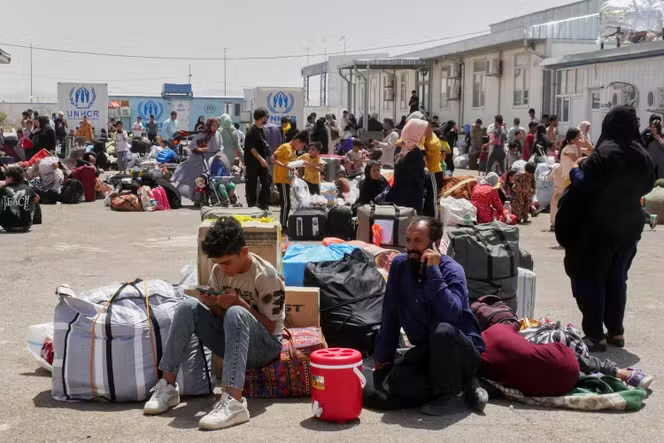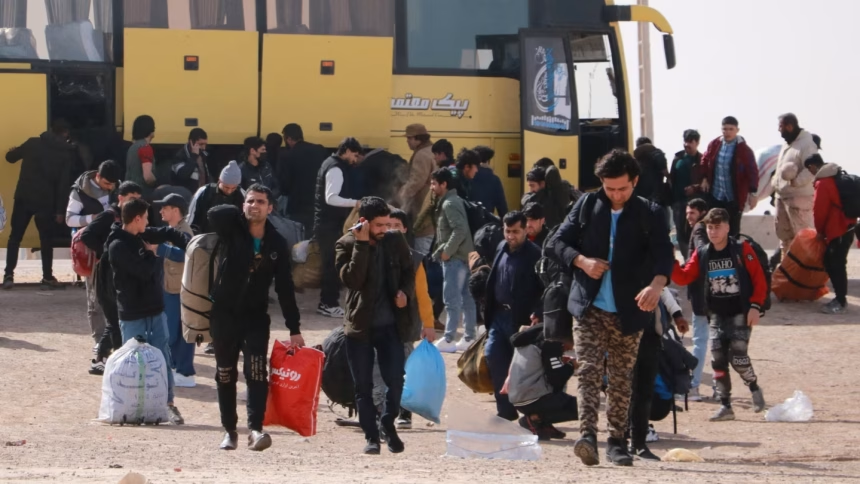In what is being described as one of the largest forced migrations in recent decades, Iran has begun expelling hundreds of thousands of Afghan migrants from its territory, triggering a humanitarian crisis that is drawing global concern.
Over the past six weeks alone, more than 600,000 undocumented Afghan nationals have been deported—many of them without warning, and often without the chance to collect their belongings or wages earned through years of labor.
According to figures from the United Nations, this sweeping deportation campaign reached a staggering peak in recent days. An estimated 500,000 people were deported in just 16 days, with 88,000 expelled over a single 48-hour span ahead of a deadline that expired on Sunday.
READ ALSO: VIDEO: Tensions Boil Over in California as Protesters Clash With Federal Immigration Agents During Raid
The timing of this crackdown closely followed the end of the recent conflict between Iran and Israel, adding further strain to an already volatile regional landscape.

For many Afghan families, Iran had served as a temporary refuge from the extreme poverty and insecurity in Taliban-ruled Afghanistan.
Afghan migrants typically took on low-paid, physically demanding jobs in construction, agriculture, and service industries—work that, while arduous, allowed them to survive and send money home. Now, that fragile lifeline has been abruptly severed.

Eleven-year-old Parissa, an Afghan girl who had spent most of her childhood in Iran, shared her story through tears: “We spent six years in Iran before they told us to apply for an exit letter and leave. We had a legal census document, but they still told us to go immediately. This year, I was told I couldn’t go back to school.”
Reports from human rights groups and local witnesses reveal that many Afghan migrants are being arrested in the streets and deported without due process. Families are separated, belongings left behind, and lives uprooted overnight. For those returning to Afghanistan, the future is bleak. The country remains gripped by economic collapse, political instability, and limited access to basic services like education and healthcare.

Iran, which has hosted millions of Afghans over the past several decades—especially during times of war and U.S. occupation in Afghanistan—has increasingly cited economic hardship, security concerns, and undocumented migration as reasons for the crackdown.
READ ALSO: U.S. Senator Threatens India and China With Sanctions Over Russian Oil Imports (VIDEO)
However, humanitarian agencies warn that the mass deportations are exacerbating an already dire refugee crisis and putting countless lives at risk.

As international attention grows, calls are mounting for regional cooperation and global intervention to protect the rights and dignity of displaced Afghans. But for now, hundreds of thousands find themselves caught between the rock of Iran’s sudden expulsion and the hard place of Taliban-ruled Afghanistan—trapped in a tragic cycle of displacement, poverty, and uncertainty.
Be the first to know. Tap to join us on Telegram.
Discover more from Scoop Hub
Subscribe to get the latest posts sent to your email.

